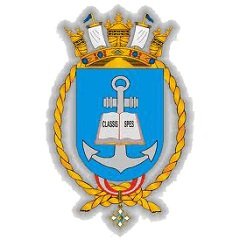Text II
Disability is not an obstacle to success. These inspirational
leaders prove that.
World Economic Forum
Dec 2, 2016
Disability need not be an obstacle to success," Stephen Hawking wrote in lhe first ever world disability repor! back in 2011. As one of lhe most influential scientists oi modern times, the wheelchair-bound physicist is certainly proof of that. These four leaders show that disability is no barrier to achieving incredible things.
Frida Kahlo
Mexico's most famous artist was born with spina bifida, a condition that can cause defects in the spinal cord. At six, she contracted polio, which left one leg much thinner than the other.
ln spite of these challenges, she was an aclive child, but at 18 a bus accident left her with serious injuries. lt was while recovering from the accident that Frida discovered her love of painting. She would go on to be one of the most famous Surrealists in the world.
Helen Keller
Born in the US in 1880, an illness left Helen Keller both blind and deaf before her second birthday. While the services available to people with disabilities were less extensive than they are today, Keller's mother sought out experts and ensured her daughter received the best education.
ln 1904, Keller graduated from Radcliffe College, becoming the first deaf-blind person to earn a Bachelor of Arts. lt was at university that her career as a writer and social activist started. Today, lhe Helen Keller archives contain almost 500 speeches and essays on topics as varied as birth control and Fascism in Europe.
She would go on to achieve international acclaim, becoming America's first Goodwill Ambassador, and to this day she remains an inspiration to the deaf and blind.
Mark Pollock
"I went blind at 22. From an athlete, I became a young man with a white cane, unsure how to live my life," Mark Pollock, a Forum Young Global Leader explains. But very soon, he found a deeper purpose in life, and realized his disability didn't have to stop him from achieving great things.
"I began to race in deserts, mountains, across oceans, and on the 10th anniversary of going blind, I raced over 43 days to the South Pole."
But in 2010, an accident left him paralyzed, and once again his world changed overnight: "My new life was shattered." He had a choice: to let his disability define him for lhe rest of his life, or to continue fighting. There was only ever one way it was going to go."lf I just sat in a wheelchair, I would be giving up completely," he remembers. Today, he's working with other leaders from science, technology and communications to fund and fast-track a cure for paralysis.
Ralph Braun
Ralph Braun was still a young boy when he was diagnosed with muscular dystrophy, an incurable group of genetic diseases that leads to a loss of muscle mass.
A few years after his diagnosis, Ralph began to lose his ability to walk. While doctors warned him he would never be able to lead an independent life, the lively young boy was already proving people wrong, building the first battery-powered scooter. His passion would eventually lead him to establish wheelchair manufacturer BraunAbility.
He died in 2013, but as his company's website notes, his legacy lives on. "Necessity is the mother of invention, and Ralph's physical limitations only served to fuel his determination to live independently and prove to society that people with physical disabilities can participate fully and actively in life."
Adapted from https://medium.com/world-economic-
forum/disability-is-not-an-obstacle-to-success-these-inspirational-
leaders-prove-that-72176033669


